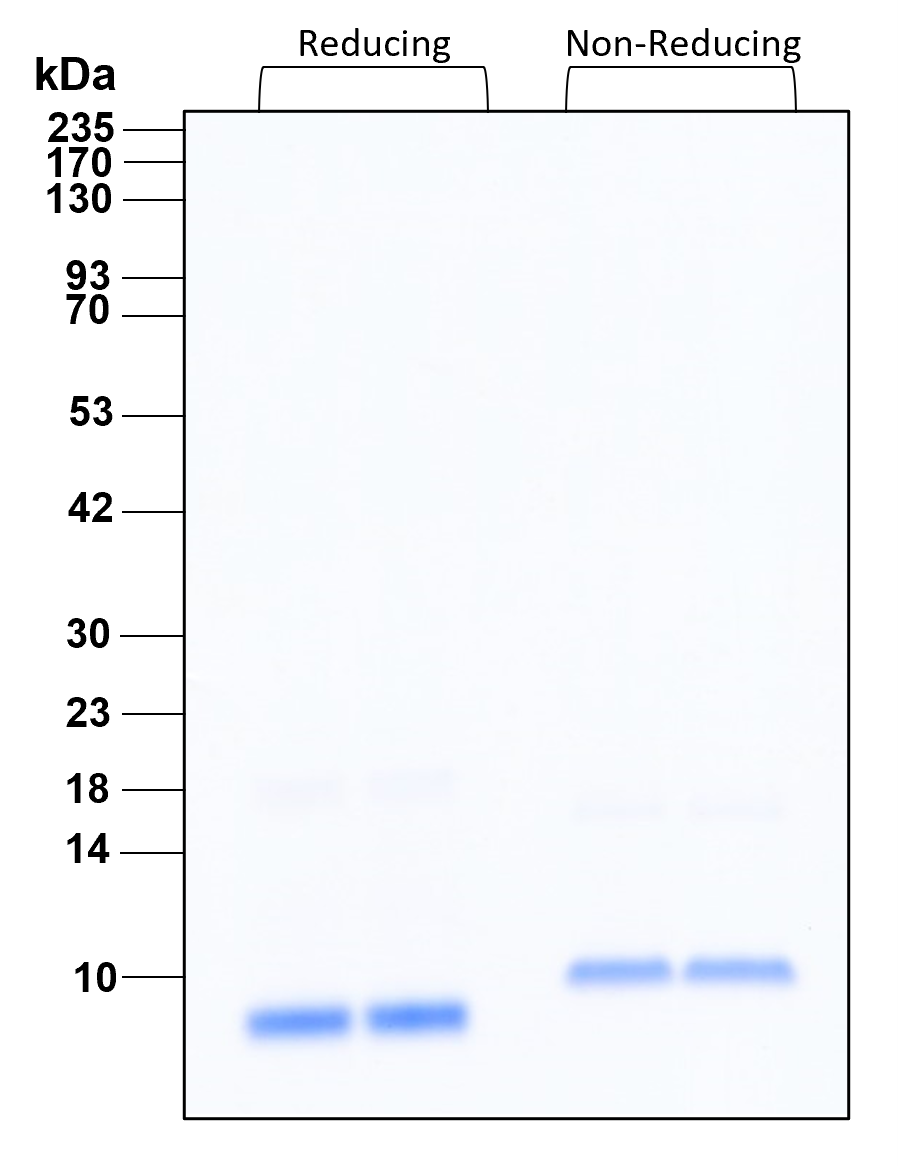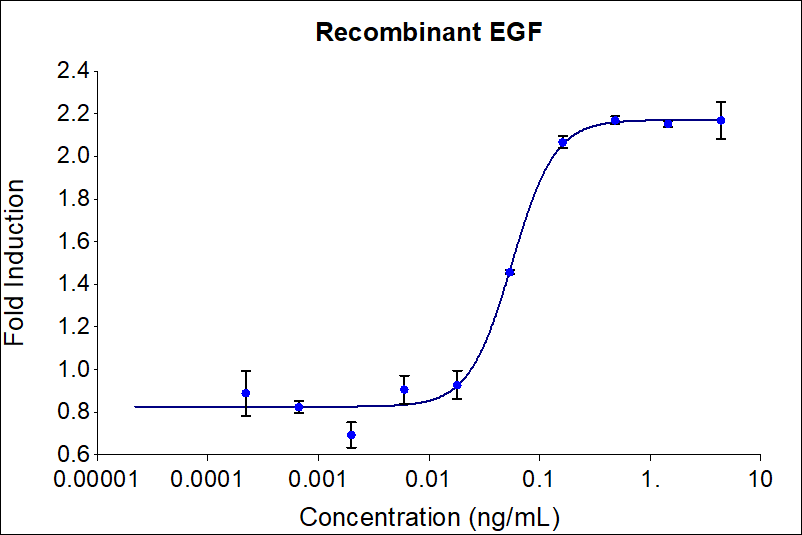- HEK293 expressed
- Endotoxin-free
- Animal-component free
HumanKine® recombinant human EGF protein
Activity
0.1-0.6 ng/mL
Specific Activity
minimally 1.00x106 IU/mg
Species Reactivity
human
Purity
> 95%
Validation Data Gallery
Technical Specifications
| GeneID | 1950 |
| Species | Human |
| Expression | HEK293 |
| Activity | 0.1-0.6 ng/mL |
| Specific Activity | minimally 1.00x106 IU/mg |
| Purity | > 95% |
| Endotoxin | <1.0 EU/µg |
| Accession Number | P01133 |
| Molecular Mass | 6 kDa reduced, 10 kDa non-reduced, monomer, glycosylated |
| Formulation | 1x PBS, See Certificate of Analysis for details |
| Species Reactivity | human |
Stability and Reconstitution
| Stability and Storage | Product Form | Temperature Conditions | Storage Time (From Date of Receipt) |
|---|---|---|---|
| Lyophilized | -20°C to -80°C | Until Expiry Date | |
| Lyophilized | Room Temperature | 2 weeks | |
| Reconstituted as per CofA | -20°C to -80°C | 6 months | |
| Reconstituted as per CofA | 4°C | 1 week | |
| Avoid repeated freeze-thaw cycles. | |||
| Reconstitution | Briefly centrifuge the vial before opening. It is recommended to reconstitute the protein to 0.2 mg/mL in sterile 1x PBS pH 7.4 containing 0.1% endotoxin-free recombinant human serum albumin (HSA). Gently swirl or tap vial to mix. |
Background
EGF (epidermal growth factor) is a 6 kDA, single chain protein that serves a mitogenic factor for numerous cell types, particularly epithelial cells and fibroblasts. It is predominantly produced and secreted by the kidneys in humans. EGF activates cells through binding with its corresponding receptor (EGFR). Receptor binding activates several downstream pathways leading to cell proliferation, differentiation, and apoptosis. EGF plays important roles in embryonic development, tissue regeneration, transport through ion channels, and wound healing. Dysregulated EGF signaling has been linked with renal disease progression, and EGF levels could potentially be used as biomarker to monitor disease-related cell damage (PMID: 15110798, 24513230, 27868030).
Synonyms
Urogastrone
Publications
| Species | Title |
|---|---|
Nat Commun Pharmacological blockade of TEAD–YAP reveals its therapeutic limitation in cancer cells | |
Front Oncol USP7 regulates growth and maintains the stemness of p53-mutant colorectal cancer cells via stabilizing of mutant p53 | |
Am J Physiol Renal Physiol A conditionally immortalized Gli1-positive kidney mesenchymal cell line models myofibroblast transition | |
Cancer Med Integrated analysis based on vesicle trafficking-related genes identifying CNIH4 as a novel therapeutic target for glioma | |
J Dent Sci Wnt/Ca2+ pathway inhibits neural differentiation of human dental pulp stem cells in vitro |

